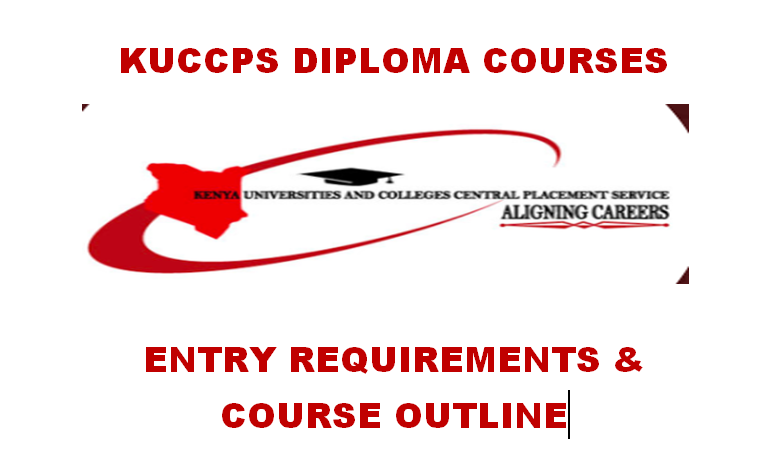Diploma in maritime transport logistics course outline entry requirements and all the related concerning diploma in maritime transport logistics here. Diploma in maritime transport logistics graduate should be able to perform and manage operations in shipping, cargo clearing, warehousing and freight forwarding
- Course duration: 3 years (3 modules)
- Examination body: KNEC
Diploma in maritime transport logistics Entry requirements
Diploma in maritime transport logistics is examined by KNEC and is offered by various approved TVETS, universities and colleges in Kenya. The entry requirements are;
- KCSE aggregate Grade of C- and above or its equivalent as acceptable Qualification by KNEC
- Pass in Relevant Certificate Qualification Learning Outcomes for example a certificate in maritime transport logistics graduate wishing to upgrade his or her qualifications need to have obtained a PASS result from a recognized institution to enroll for Diploma in maritime transport logistics.
- Mean grades for specific KCSE subjects are not specified for Diploma in maritime transport logistics course
Universities and colleges offering Diploma in maritime transport logistics courses
Trainees wishing to enroll for a Diploma in maritime transport logistics course can easily choose from various institution offering the course. Full institutions are always listed on KUCCPS portal as soon as it is open for application during various intakes, for more on this just visit the KUCCPS portal here
Diploma in maritime transport logistics course outline
Diploma in maritime transport logistics is offered in 3 modules. 1 module takes a duration of 6 months then an examination is always administered at the end of each module for trainees to proceed to field attachment and eventually the next module. Attachment is always offered twice module 1 and module 2. The final exam is administered in module 3 for a candidate to graduate into the field market.
Career opportunities in diploma in maritime transport logistics
- At the end of the Maritime Transport Logistics course, the trainee should be able to supervise the processing of shipping documents, manage port operations, undertake cargo and ships clearance with relevant authorities, interpret contract documents in shipping business, comply with environmental conventions, laws and regulations, supervise logistics and multimodal transport operations and perform ship broking activities.
The following are a list of units/ subjects studied at Diploma in maritime transport logistics module 1
- Introduction to Shipping
- Business Plan
- Entrepreneurship
- Documentation in Shipping Practice
- Financial Accounting
- Communication Skills
- Information Communication Technology
- Life Skills
- Health, Safety and Security in Transport Logistics
- Ports and Terminals
- Legal Principles in Shipping
- Occupational Safety & Precautions
The following are a list of units/ subjects studied at Diploma in maritime transport logistics module 2
- Cargo and Terminal Operations
- Environmental Aspects in Transport Logistics
- Containerization
- The Law of Carriage of Goods by Sea
- Clearing and Freight Forwarding
- Quantitative Techniques
- Principles and Practice of Marketing
The following are a list of units/ subjects studied at Diploma in maritime transport logistics module 3
- Shipbroking and Chartering Practice
- Economics of Sea Transport and International Trade
- Shipping Finance
- Multi-Modal Transport Logistics
- Principles and Practice of Management
- Marine Insurance
- Trade Project
MORE FREE CERTIFICATE& DIPLOMA COURSES KNEC PAST PAPERS:
- Diploma in ICT module 2 KNEC past papers Free download
- Diploma in ICT module 3 KNEC past papers Free download
- Certificate in ICT module 1 KNEC past papers Free download
- Certificate in ICT module 2 KNEC past papers Free download
- Diploma in Electrical and electronic engineering module 1 KNEC past papers Free download
- Diploma in electrical and electronic engineering module 2 KNEC past papers Free download
- Diploma in Human resource management module 1 KNEC past papers Free download
- Diploma in human resource management module 2 KNEC past papers Free download
- Craft in supply chain management module 1 KNEC past papers Free download
- Certificate in electrical and electronic engineering module 1 KNEC PAST PAPERS
- Certificate in electrical and electronic engineering module 2 KNEC PAST PAPERS
- Craft in supply chain management module 1 KNEC PAST PAPERS
- Diploma in building technology module 1 KNEC PAST papers
- Diploma in building and technology module 2 KNEC past papers
- Diploma in building and technology module 3 KNEC past papers
- Diploma in civil engineering module 1 KNEC PAST PAPERS
- Diploma in civil engineering module 2 KNEC PAST PAPERS
- Diploma in civil engineering module 3 KNEC PAST PAPERS
- Craft in supply chain management module 2 KNEC PAST PAPERS
- Diploma in Quantity survey KNEC past papers
- Certificate in plumbing module 1 KNEC past papers
- Certificate in building and technology module 1 KNEC past papers
- Certificate in building and technology module 2 KNEC past papers
- Diploma in social work and community development module 1 KNEC past papers
- Diploma in social work and community development module 2 KNEC past papers
- Diploma in social work and community development module 3 KNEC past papers
- Diploma in electrical and electronic engineering module 3 KNEC past papers
- Diploma in Human resource management module 3 KNEC past papers
- Diploma in supply chain management module 3 KNEC past papers
- Diploma in supply chain management module 1 KNEC past papers
- Certificate in human resource management module 2 KNEC past papers
- Diploma in supply chain management module 2 KNEC past papers
- Certificate in human resource management module 1 KNEC past papers
COURSE NOTES
- Introduction to ICT and ethics notes PDF
- Communication skills notes PDF
- Entrepreneurship notes PDF
- Economics notes PDF
- Financial accounting notes PDF
- Business law notes PDF
- Research methodology notes PDF guide
- Trade project notes & PDF sample
- Principles and practice of marketing notes PDF
- Microprocessor systems notes PDF
- Management information system MIS notes PDF
- Data communication and networking notes PDF
- Internet based programming IBP notes PDF
- Quantitative methods notes PDF
- Visual basic notes PDF
- Object oriented programming notes PDF
- Database management system notes PDF
- System analysis and design notes PDF
- Quantitative techniques notes PDF
- Principles and practice of management PPM notes PDF

